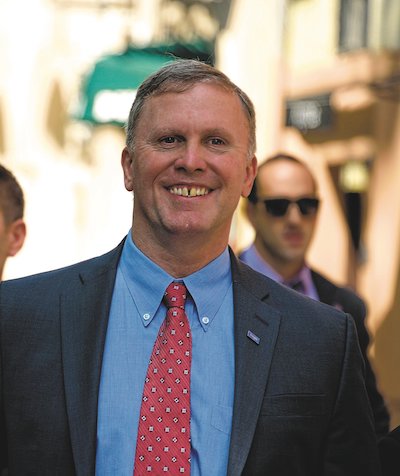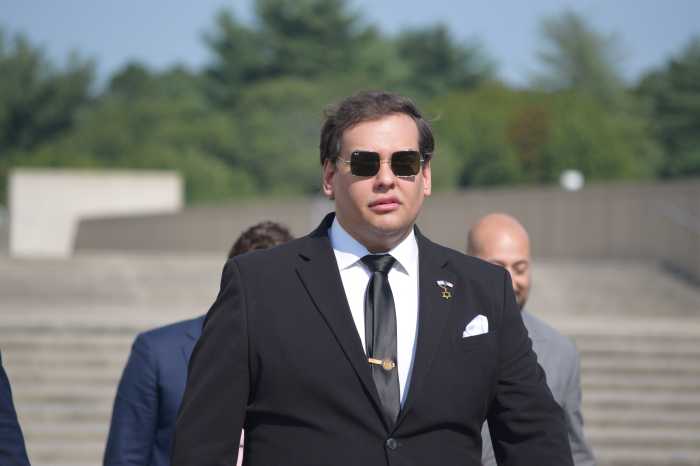
BY PAUL SCHINDLER | Advocates for LGBTQ seniors are scrambling to mobilize opposition to a Trump administration plan to drop questions about sexual orientation and gender identity from an annual government survey of older Americans.
According to Michael Adams, CEO of Services and Advocacy for GLBT Elders, or SAGE, the National Survey of Older Americans Act Participants, which has counted the number of LGBTQ seniors each year since 2014, is a critical tool for making the needs of older Americans known to legislators and other policymakers.
“The most important impact,” Adams said of the former Obama administration’s decision to incorporate sexual orientation and gender identity into the tally, “was in sending a message to federally-funded elder care providers that this was a segment that had to be served. We saw positive results as a consequence.”
Now, the federal Administration on Aging, a unit of the Administration for Community Living within the Department of Health and Human Services, has put forward its new survey format that deletes the count of LGBTQ seniors that was done in 2014, 2015, and 2016. The agency is accepting public comment on the proposed survey form through May 12, and SAGE is pushing to get as many people as possible to submit their input.
A dramatic public campaign by SAGE (which appears as an ad on page 2 of the April 27 issue of our sister publication, Gay City News) recalls the famous New York Daily News front page castigating President Gerald Ford’s refusal to bail out New York City during the height of its 1970s fiscal crisis, with the all-capitalized phrase: “TRUMP TO LGBT ELDERS: DROP DEAD.” Directing people to the group’s website at sageusa.org, the ad also states: “We refuse to be invisible.”
The new administration’s plans regarding the annual survey, Adams said, amounts to “an erasure” of older queer Americans. “Trumps wants LGBT Elders to just disappear,” the SAGE website reads.
Asked what specific benefits older LGBTQ Americans gained from their inclusion in the survey, Adams explained, “We saw state offices on aging and area offices on aging stepping up and doing needs assessment and designing programs to serve our community. Of course not everywhere, but in a growing number of places including in places we wouldn’t have expected.”
Noting that the federal government is the largest funder of elder services across the nation, Adams added, “Our fear is that this disregard will cascade down to state and local governments.”

Adams argued that the proposed change in the Older Americans survey is “part of a pattern and practice of stripping rights from the LGBTQ community” on the part of the new administration in Washington. A similar modification is also proposed for the annual survey of residents of independent living centers, which provide housing for seniors and other Americans who have physical disabilities. The Census Bureau, within the Department of Commerce, recently pulled back plans in the works — again in the Obama administration — to include questions aimed at tallying the number of LGBTQ Americans in 2020. The Census has, since 1990, accumulated data on same-sex partner households, but LGBTQ self-identification has never been measured.
“The federal government is the primary collector of data on so many things,” Adams said. “At the end of the day, it is difficult to make change on so many issues, elder issues included, without data.”
In recognition of the critical link between being counted and getting services, New York City late last year enacted several laws aimed at better counting a variety of underserved populations — including LGBTQ residents, non-English speakers, and those with multi-racial backgrounds — for a wide array of service delivery purposes.
“It’s an atrocity, a huge step backwards,” Adams said of the Trump administration push against documenting the nation’s LGBTQ population, as he also noted its reversal on protecting transgender students.
“Our goal here is stop this from happening,” he said, noting support SAGE has from other leading LGBTQ and elder advocacy groups. “But there is something else we need to accomplish here. It’s clear the Trump administration thought this could be done in the dead of night. We need to show them that they can’t do this in the dead of night. We need to make it really clear they will pay a high price.”
































